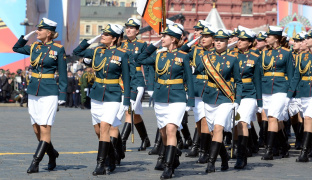The number of citizens who believe that events in Ukraine are developing in the right direction has significantly decreased in two months. This is evidenced by the results of a study conducted by the sociological service of the Razumkov Centre from November 1 to 7, 2019.
So, 37.5% of the respondents believe that the events in Ukraine are developing in the right direction (there were 57% of them in September 2019 and 45% in October 2019), and 35% consider that the events are developing in the wrong direction (17% - in September and 29% - in October). Consequently, the share of those who believe that the events in Ukraine are developing in the right direction is equal to the share of those who hold the opposite point of view.
Assessing how the situation in the country as a whole has changed compared to the beginning of 2019, 48% of the respondents believe that it has not changed, 26% - that the general situation in the country has worsened, and 15% - that it has improved.
Assessing changes in various spheres of public life over this period, most often, the respondents believe that the situation has not changed (the exception is the level of prices and tariffs, where the situation is most often deteriorating). Areas in which the respondents noted an improvement more often than worsening at a statistically significant level: the level of freedom of speech (20% of the respondents indicate an improvement, 14% - worsening), the level of democracy (17% and 14%, respectively), the country's defense capability (19% and 16%, respectively) and the international image of Ukraine (25% and 22%, respectively).
Areas in which deterioration is noted more often than improvement at a statistically significant level: the level of prices and tariffs (50% of the respondents indicate a deterioration, while only 5% indicate an improvement), healthcare (31% and 6.5%, respectively), social protection (28% and 7%, respectively), family welfare (27% and 8%, respectively), labor remuneration (24% and 5%, respectively), citizens' confidence in the future (31% and 14%, respectively), stability level (28% and 12%, respectively), the country's economic situation (23.5% and 9%, respectively), crime situation (22% and 7%, respectively), pensions provision (21% and 6%, respectively), education (19% and 6%, respectively), law enforcement by government officials (17% and 13%, respectively) and position of the Russian-speaking population (11% and 7%, respectively).
Compared to previous months, the proportion of those who believe that Ukraine is able to overcome existing problems and difficulties over the next few years has decreased (there were 41% of them in September 2019, 34% - in October and 29% according to the latest survey).
The shares of those who believe that the country is able to overcome them in the more distant future were 40%, 43.5% and 46%, respectively, not able to overcome them - 6%, 10% and 11.5%, respectively. The last two answers were chosen by the respondents more often than in September at a statistically significant level, but the difference with the October indicators is statistically insignificant.
In total, 2015 respondents over the age of 18 were interviewed in all regions of Ukraine, with the exception of Crimea and the occupied territories of Donetsk and Luhansk oblasts, in a sample representing the adult population of the country by main socio-demographic indicators. The survey sample was constructed as a multi-stage, random, with quota selection of respondents at the last stage. The theoretical sampling error (excluding the design effect) does not exceed 2.3% with a probability of 0.95.




